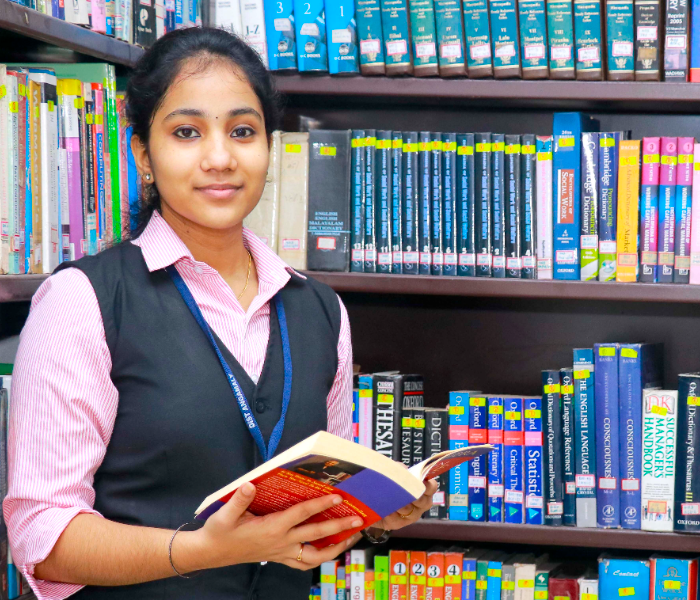Warning: Undefined array key "vp_page_image_desc" in /home/royalifems/public_html/edud/pages.php on line 37
Warning: Undefined array key "vp_section1_image_desc" in /home/royalifems/public_html/edud/pages.php on line 43
Warning: Undefined array key "vp_section2_image_desc" in /home/royalifems/public_html/edud/pages.php on line 49
Library
- Home
- >
- Library
College libraries typically offer a variety of specialized facilities designed to support academic learning, research, and collaboration. Here are some common features and facilities you can find in a college or university library:
1. Study Spaces
- Quiet Study Areas: Zones dedicated to individual, silent study.
- Group Study Rooms: Small rooms that can be booked for group work or meetings, often equipped with whiteboards or digital screens.
- Open Study Areas: Less formal spaces with tables and seating for group work or individual study.
2. Research and Reference Services
- Research Help Desks: Staffed by librarians who assist students in finding academic resources, navigating databases, and conducting research.
- Subject Specialists: Librarians specializing in different academic fields who can offer in-depth research guidance.
- Citation Assistance: Help with citing sources correctly using various citation styles (APA, MLA, Chicago, etc.).
3. Computer and Technology Services
- Public Computers: Computers available for students to use for research, assignments, and general internet access.
- Wi-Fi Access: Free and fast wireless internet for students to connect their personal devices.
- Printers, Scanners, and Copiers: Available for students to print assignments, scan documents, or make copies.
- Laptops/Tablets for Loan: Some college libraries offer laptops, tablets, or other tech devices for students to borrow.
4. Digital Resources and Databases
- Online Journals and Databases: Access to a vast range of academic journals, research papers, and databases across various disciplines.
- E-books and E-journals: Digital versions of books and journals that students can access remotely.
- Institutional Repositories: A collection of theses, dissertations, and research outputs by the institution's students and faculty.
5. Multimedia and Digital Labs
- Media Production Labs: Facilities equipped with software and hardware for video editing, audio recording, and other forms of digital media production.
- Design and 3D Printing Labs: Spaces for students to create models and prototypes using 3D printers and design software.
- Virtual Reality (VR) Stations: For fields like architecture, engineering, and medical studies, VR technology can be used for immersive learning experiences.
6. Special Collections and Archives
- Rare Books and Manuscripts: College libraries often have collections of rare, historical, or specialized books and documents.
- University Archives: Housing historical records related to the college, such as past theses, dissertations, or documents of significant value.
7. Collaborative Workspaces
- Tech-Enhanced Study Rooms: Rooms with smart boards, projectors, and other technology to facilitate group study, presentations, or collaborative projects.
- Discussion Rooms: Informal areas where students can work together, discuss assignments, or hold group meetings.
8. Workshops and Learning Support
- Library Instruction: Sessions and workshops to teach students how to use databases, conduct academic research, or use citation tools.
- Study Skills Workshops: Guidance on time management, note-taking, or exam preparation.
- Technology Training: Tutorials or workshops on using specialized software, such as statistical programs (SPSS, R), design tools, or video editing platforms.
9. Access to Course Materials
- Course Reserves: Textbooks, readings, or other materials set aside by professors for specific courses.
- Electronic Reserves: Digital versions of course materials that students can access online.
10. Maker Spaces
- Creative Workspaces: Equipped with tools like 3D printers, laser cutters, or even sewing machines, allowing students to build, prototype, or create.
- Workshops: Regular sessions to teach students how to use maker space equipment.



